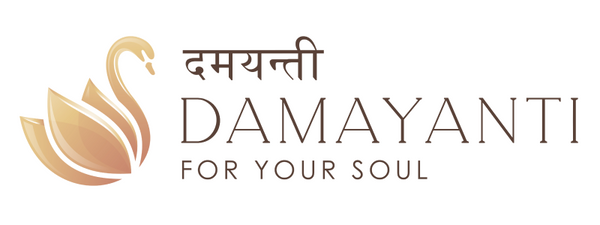Memory is the Mother of All Wisdom
Aeschylus, (525-456 BC) Athenian Playwright
In my blogposts I like to explain an idea, usually derived from the wisdom of Sanskrit. I try to illustrate that idea with stories and anecdotes, often from my own life and experience, and I round things off with a practical tip or two which can cement the experience in your life as well.
The experience gained in this way means my readers develop their own unique understanding of, say, strength, or courage, or universal love. They discover how, for example, they can step into the vibration of kshamā – patience – and use it when events tempt them into judgment or criticism or requirements. I have had a lot of feedback from readers who have been grateful for the guidance.
One issue that a few of them raised was memory, or rather, forgetfulness. They loved doing the exercises but found that they just didn’t remember often enough, and sometimes, when they did remember, they would delay and get distracted, and the opportunity would pass. Then it might be days before they remembered again. Many were mystified that they had been given a free entry ticket into a world of wisdom, patience, resilience, strength, love and so much more, and were dawdling on the threshold. Why couldn’t they just remember and then apply themselves to the easy exercises?
The simple answer is habit, ego and mental noise. This simple answer, however, can become very complex if we get lost in the details. Let’s just agree for now that there are barriers to memory, and ask how we can jump over them.
The key to this is resolution and application. Make a mental decision to practice, to apply yourself, and to put the various exercises into effect. Then devise some way of surrounding yourself with reminders. In the past I’ve suggested sticky notes on the bathroom mirror and a regular ping on your phone. Another key is to grasp the moments that appear spontaneously. If the memory to practice mindfulness or to come into the present moment pops into your head, then go for it! Even if it doesn’t seem convenient – you’re driving, or in a conversation – just connect there and then with your physical body through touch or sight or hearing, and come into the present moment.
This will strengthen the memory muscles.
Memory can often come to us out of the blue. It is like a gift. The more you welcome and take advantage of the gift of memory, the more that gift will appear in your life. Then, taking a moment to feel gratitude is a very powerful way of increasing your strength and your good habits.
There is another interesting aspect to this, however.
Forgetfulness is not always an enemy. This may seem odd, but look at it like this. If we are to build up physical strength, we need repetition and resistance. A push up, for example, requires us to go down to the floor to be able to do another one. Forgetfulness gives us the opportunity to work.
There is a beautiful Indian story that illustrates this.
One day an evil force was unleashed on the universe in the form of a dwarf named Apasmāra. This demon was the embodiment of forgetfulness and spiritual ignorance, in fact that is what his name means. Smara means remembering, recollecting, and memory. Apasmāra is its opposite.
Apasmāra played havoc with mankind. He threw a dark veil over the minds of men and women, and they ceased to perform sacrifices to the Gods. Everyone forgot the sacred rituals and forms of worship. People ceased to pray. They began to mock time-honoured traditions. They began to act contrary to virtue and the ethics laid down by the wise. People grew angry and divisive, cowardly and deceitful, greedy and lazy. Violence and conflict broke out everywhere.
Apasmāra was delighted. He laughed and danced, pleased at the mischief he was making throughout the universe.
The Gods, starved of the sacrifices of mankind, pleaded with Lord Shiva, the Great God, Master of Life and Death, the Lord of the Universe. They begged him to intervene. Shiva agreed.
Lord Shiva pursued Apasmāra and finally captured him. Lord Shiva held him by the scruff of his neck and forced him to submit. Apasmāra cowered before Lord Shiva’s wrath and begged for his life.
“I am the master of ignorance and spiritual forgetting,” said Apasmāra, “If you kill me, then wisdom and understanding will come too easily to mankind. They will hold it to be of little value. My death will cause a different kind of imbalance in the universe. Men and women need to struggle against me to kindle the fire of wisdom in their hearts.”
Lord Shiva agreed and granted Apasmāra his life.
Then, to restore the universe to rights after the chaos caused by Apasmāra, the Great God assumed the form of the four-armed Nataraja, the Lord of the Dance.
For his platform he placed Apasmāra below his right foot and began to dance on his back. In one of his four hands he held a drum, which beat out the creative measures of the universe. He held another hand with palm outwards in the Abhaya Mudra gesture. This was a sign that those who follow the path of wisdom have nothing to fear. A third hand held the fire of awakened consciousness, and the fourth hand pointed to his raised left foot symbolising liberation from earthly cares.
Shiva danced on the back of Apasmāra, surrounded by a circle of flame symbolising the never ending cycle of creation.
This story is full of practical meaning for us. Forgetfulness is certainly a problem for most of us. It can also be a blessing, insofar as it gives us the opportunity to make efforts on a spiritual journey. When Apasmāra – forgetfulness - is out of control and in the ascendant, he wreaks havoc in our personal lives, and also in the wider community. But when he is brought to heel, he keeps us vigilant, on our toes, so to speak. He requires us to make an effort. As the saying goes: ‘Do what is easy, and your life becomes hard. Do what is hard, and your life becomes easy.’
My teacher called this effort ‘the battle between yes and no’. This creates a kind of spiritual friction. This, in turn, kindles a flame which burns up ignorance, and lights up the desire for truth, and for a life lived under the protecting umbrella of wisdom. If you can imagine getting a fire going in the wild without matches, you get the idea of the initial effort required to get those first embers glowing. Apasmāra is certainly troublesome and mischievous. However, the work we do to overcome him, makes us more appreciative of the final reward. This reward comes in the form of strength, confidence and creativity, and the relief of saying goodbye to our old tiresome ways.
To round this off, let’s get back to the simple point with which we began. In this journey we need to hear wisdom from those who have gone before. Either in person, or through their writings. Then practical application of the wisdom is vital. Action on our part, under the guidance and light of wisdom, begins a magical transformation of our being. Our old habits weaken their grip, and a new more useful way of living begins to emerge. Sometimes habitual reactions to events – impatience, judgments and criticisms, regrets and fears – just fade away almost without us knowing it. Perhaps friends and family begin to comment on the change.
In this process, meeting and defeating Apasmāra is to be expected, perhaps even welcomed. And to do this we can go back to those sticky notes and that pinging phone. We can also make some of the practices a matter of routine – first thing in the morning, last thing at night, every time we are stopped at a red light, or arrive at the office.
There is another extremely powerful aid to remembrance and focus. This is satsangha which means ‘good company’. This is a mighty force. The wise extol satsangha and emphasise its crucial importance on the journey to spiritual realisation.
Satsangha is the company of like-minded people who are intent on freedom and waking up to higher consciousness. They are people who are keen to seek out sources of wisdom and, having found such sources, to study what is being said, assimilate the teachings, and follow the guidance and the steps laid down. People who are good company encourage their companions, are enthusiastic, and offer a helping hand when there is the occasional misstep.
Our teacher told us that it was almost impossible to act badly when we are in good company; and it was equally difficult to act well in bad company.
I was incredibly fortunate to find myself in good company when I followed my parents to a school of meditation and higher consciousness. I count myself doubly fortunate now when I can be good company for others who want to go free. The topic of good company deserves an entire blog post on its own. I’ll just end with a last word of encouragement to keep going on the path to wakefulness. The journey is exciting, filled with illumination and inspiration, you meet the most interesting people, and the goal is nothing less that complete freedom.

